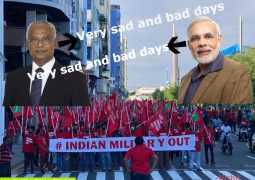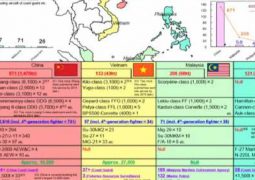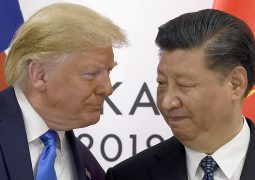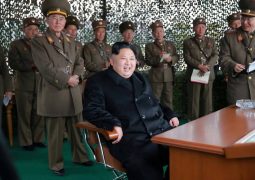Shyam Saran, Hindustan Times: Hong Kong protests have dented China’s image of invincibility
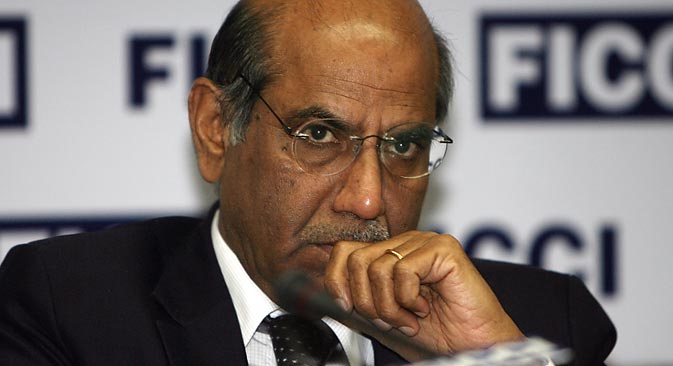
The millions who marched through the streets have displayed enormous courage. We must thank them
ANALYSIS Updated: Jul 11, 2019 20:16 IST

(HK) has seen unprecedented anti-China protests in recent weeks, posing the most serious challenge to Chinese rule over the territory since Beijing resumed sovereignty over it in 1997. The trigger for the current protests was a proposed legislation that allows the extradition of HK residents who face criminal charges to China. Till now, China has been able to pick up HK residents it regards as inimical to its interests by kidnapping them or apprehending them in third countries. The proposed legislation would have rendered such unconventional methods unnecessary. In the face of the protests, the Hong Kong CEO, Carrie Lam, announced on Monday that the extradition legislation is “effectively dead”. But this has not satisfied the protesters who want the legislation withdrawn and insist that Lam resigns.
On July 1 (the anniversary of the 1997 handover of HK to China), protesters broke into the territory’s Legislative Council chamber and vandalised it. In an action that can be described as provocative and defiant, they tore down the current official insignia of HK (a pink Bauhinia flower), and put in its place the pre-handover colonial flag. The protests have been severely criticised by Beijing. The State-controlled media have called for “zero tolerance” of the protesters, and warned that any failure to punish the perpetrators would open a “Pandora’s Box” with dangerous consequences. It would be unlike China and its powerful leader Xi Jinping to let this incident pass and if, in course of re-establishing control, the one country-two-system mechanism has to be abandoned, it would be done without question.
The parallel with the Tiananmen incident of June 1989 should not be forgotten. Despite the international political isolation it entailed, the Chinese government had no hesitation in using indiscriminate and brutal force to drive the demonstrators out from the historic square. Should the current demonstrations go beyond a certain threshold, one should expect a similar treatment.
Hong Kong is no longer as important as it once was in providing China with its most useful channel for its external economic dealings. In 1997, nearly 50% of China’s external trade was channelled through HK. Now it is only 12%. Nevertheless, there are other important aspects in which HK continues to be of significant importance to China, particularly at a time of US-China trade tensions.
Thanks to the United States-Hong Kong Policy Act of 1992, the territory is accorded separate economic treatment beyond 1997. This enables Chinese companies to evade US trade sanctions by routing exports through HK. Similarly, HK-based entities do not face the same technology-related restrictions from the US as China-based companies on the mainland do.
In case of a violent crackdown on the protests, this special treatment of HK will almost certainly be withdrawn and this will only ratchet up both trade and political tensions with the US. There will be major setback to Chinese efforts of the past decade and more to use HK to incrementally promote integration with the international financial markets and the internationalisation of the Chinese currency, the Renminbi (RMB), in case HK loses its status as the world’s third ranking financial centre.
According to the Economist, 75% of offshore RMB-designated payments are handled through HK, as are 39% of all offshore RMB currency dealings. Even today, 63% of the Foreign Direct Investment (FDI) into China and 59% of China’s outward FDI are routed through the territory.
Most of the 1,300-plus multinationals, which have their regional headquarters in HK, are mainly engaged in China-related trade. China has been trying to promote Shanghai, which operates under much tighter control of mainland authorities, as an alternative to HK. But this has been a slow and not always a successful process. Shanghai may indeed become the key financial centre for China displacing Hong Kong but this will take time.
Hong Kong has provided value as a testing ground for several financial reforms before their national adoption. For example, foreign investors are able to use the Hong Kong-Shanghai Stock Market Connect to deal in mainland securities. With HK losing its attraction as a dependable and well-established international financial centre, there will inevitably be major disruptions to China’s integration with the international financial markets. It is being argued, however, that the sheer size and growth of the Chinese economy will enable it to overcome these challenges.
What this depressing denouement may also mean is that the one country-two system idea would lose its potential attraction for Taiwan as it contemplates possible reunification with the mainland.
The millions who marched through the streets of HK have displayed enormous courage in defying a regime that even many powerful and independent countries have been loathe to criticise, let alone confront. China’s carefully constructed image of invincibility has taken a rude knock, and for this we must thank the ordinary citizens of Hong Kong.
Shyam Saran is a former foreign secretary, and is currently Senior Fellow, Centre for Policy Research
- Previous With Whom Marshal Haftar will join hands? Russia’s endgame in Libya
- Next Will overpopulation lead to overcrowded Earth Habitat? Demographic issues on World Population Day





